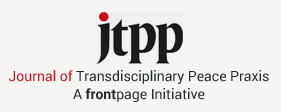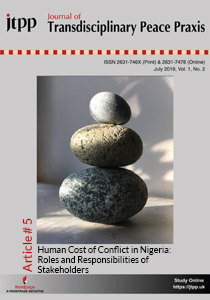Description
Human Cost of Conflict in Nigeria: Roles and Responsibilities of Stakeholders
Bosede Awodola (Chief Research Fellow, Institute for Peace and Conflict Resolution (IPCR), Nigeria)
This paper examines the human costs of conflict in Nigeria vis-à-vis the roles and responsibilities of stakeholders in conflicts areas.
The paper relies on secondary sources for analysis. Contemporary conflicts in Nigeria are a web of complex situations and the need for collaboration and cooperation of stakeholders cannot be over emphasised. Therefore, the Multi-Track Diplomacy (MTD) framework is employed to explain relationships and connectivity between stakeholders as well as their roles in an intra state conflict perspective, which may be impacted by human cost of conflict. With critical stakeholders such as local governments, as well as religious and traditional leaderships who have closer proximity and influence in the community, the possibility of communities to transform conflict and rebuild the society is high.
The paper concludes that these critical stakeholders should be empowered policy-wise to reduce human costs of conflicts and the scope of their conflict management strategies broadened to incorporate broad-based partnership and collaboration with the various actors.





